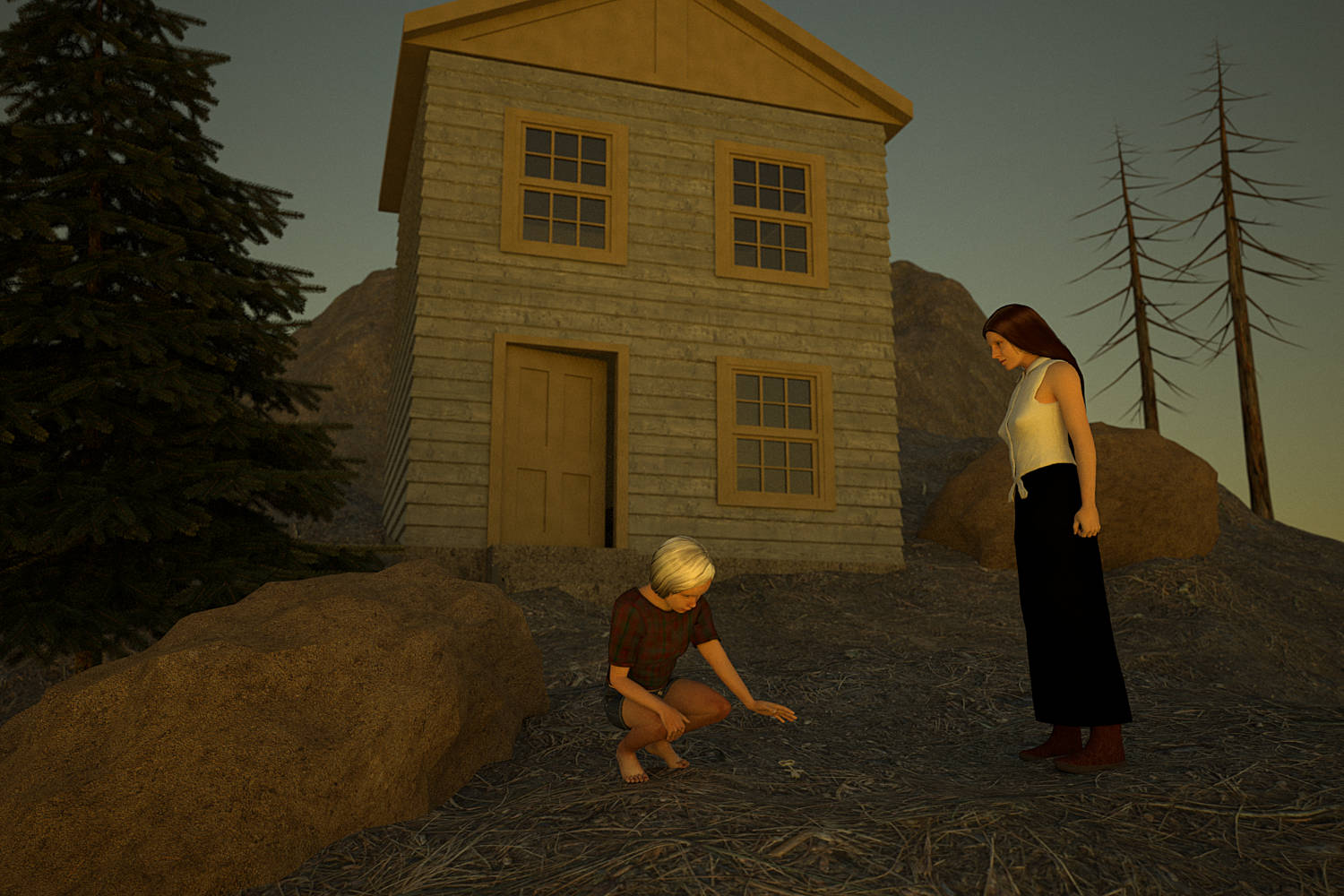
This Census Taker
2020
Inkjet on watercolour paper
90 x 67.5 centimeters
China Mieville's 2016 novella, This Census Taker, presents a world unlike any other post-apocalypse future considered in this series of reimaginings (1) (2). A young boy relates his story and the reader soon learns that he is an unreliable witness to events that make little sense in a world that is at best only vaguely comprehensible. The boy lives on a barren mountain with his emotionless mother and a father prone to episodes of psychopathic behaviour which the boy (and the reader) assume leads to the disappearance of his mother, presumably to join numerous small animals thrown into a deep pit by the enigmatic man. This event is a core of the narrative; however, typical of this book, it is presented without explanation as it joins the shrouded logic of much what occurs in this mysterious and evocative tale.
The boy joins a group of children who live in a village in the valley, they catch bats from a bridge using bamboo poles and my initial inclination was to focus on this scene for this reimagining, but it was the isolated hut seen in a softly liminal light and the melancholic landscape which is the emotional linchpin I ultimately decided upon. The kneeling boy has found a key which was probably dropped by his father who makes them for a living while his mother, who we never get to know, watches impassively.
China Mieville Yet Again Redefines Fantasy : The Guardian